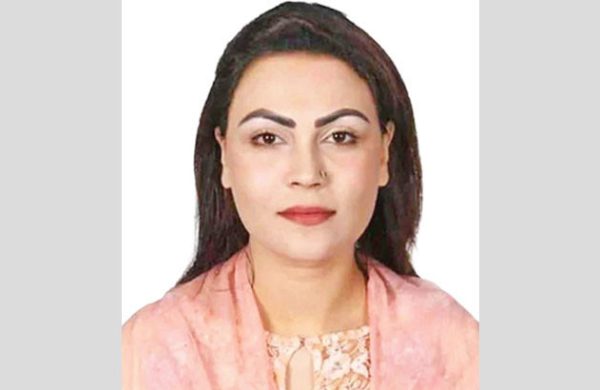Sheikh Hasina: Poised to Make History but…
- Update Time : Wednesday, July 3, 2024

–Dr Pranab Kumar Panday–
Prime Minister Sheikh Hasina becomes the longest-serving leader of Bangladesh as she enters her fifth term, securing her historical legacy. Not only does she, but also the whole country, commemorate a major milestone with this unmatched record in a democratic and constitutional governing system. During her leadership, Bangladesh has transformed into a development model, contradicting the economists’ forecast of Bangladesh’s inability to exist.
Under the direction of Sheikh Hasina, the oldest political party in the nation, the Awami League recently celebrated its 75th anniversary, highlighting its on-going influence. Bangabandhu Sheikh Mujibur Rahman established the party; his daughter is now holding the leadership. Rare in history is the synchrony of their legacies combined with the commemoration of 25 and 50 years of Bangladesh’s independence under her leadership.
When considering Sheikh Hasina’s path, it is important to weigh her successes and challenges. She has overcome both internal and external challenges, and her fortitude is very amazing. Western nations have tried to oppose her, but her strategic and political and diplomatic sense keeps them off-target. More significant challenges lay in the nation’s government and party, where corruption and special interests undermine her legacy.
Like the Chhatra League, Bangabandhu Sheikh Mujibur Rahman had excellent leaders and a disciplined party that maintained its values while staying in close contact with the people. However, Sheikh Hasina’s political scene suffers from individuals who, unlike Bangabandhu’s devoted supporters, prioritise personal gain over national significance. The reminiscences of KhandakerMushtaq, who has been around her, are presenting major challenges.
Sheikh Hasina’s government has made remarkable economic and social progress over the past 15 years, setting the country as a global benchmark for development. The Padma Bridge, Metro Rail, Elevated Expressway and Karnaphuli Tunnel were formerly ambitious projects that have now materialised, symbolising the nation’s economic stability. The government has been able to sustain a robust GDP growth rate of about 6% for an extended period, which is a favourable aspect of our economy. Significant investment in social safety net programmes has helped impoverished people sustain their means of living.
Global leaders have praised her government’s efforts to combat the COVID-19 outbreak. Nevertheless, certain issues are diminishing the government’s hard-earned accomplishments and demand prompt action.
Sheikh Hasina’s government faced a significant challenge in the form of corruption, which her father, Bangabandhu, termed a pandemic. He famously said that although Pakistan left behind criminals, corruption dogged his government. Corruption has only gotten more sophisticated in the last few years, even though the country boasts amazing economic development, from $9 billion to $460 billion. One shining example, beset by a culture of financial misbehaviour and thievery, is the banking industry, with 61 Bangladeshi and 9 international banks.
Banks are not the only ones that exhibit this systematic malfeasance. Whether in politics or other sectors, bureaucrats can make use of their positions to land rich careers post-retirement, extending a cycle of self-serving government.
The situation of expatriate Bangladeshis emphasises this problem even more. Though Sheikh Hasina is trying to draw diaspora money, widespread corruption discourages people from making investments in the country. Common reports of expatriates dealing with bureaucratic obstacles and extortion contradict the prime minister’s exhortations for investment.
One clear example is the recent social media disclosure by a Canadian political and security expert on the bribes he paid to handle family land records. Such stories highlight the widespread corruption in government agencies, demoralising possible investors, and thereby damaging the country’s reputation.
It is encouraging to note that the current leadership has taken steps to tackle dishonest government employees. The anti-corruption commission has recently initiated measures against several important former government officials, showcasing its dedication to tackling the problem of corruption.
To counteract this issue, it is imperative for the government to vigorously implement the zero-tolerance policy towards corruption that was promised in the election manifesto. A successful government must have competent people in important roles. Bangabandhu attempted to limit bureaucratic authority by setting up numerous committees but his efforts ultimately failed, resulting in his death and two decades of stagnation for the country.
Standing at this pivotal point, Sheikh Hasina has the opportunity to provide excellent government and eradicate corruption, thereby attaining immortality in Bangladesh’s history. Bangladeshis believe she will grow from the past and open the path for a rich future. She owns the fate of the country, and with the correct actions, she will confirm her legacy as a transforming leader.
Though it will present challenges, Sheikh Hasina’s road forward is rich with possibilities. She will not only ensure her position in history but also guide Bangladesh towards massive development and stability if she can successfully combat corruption and inculcate a democratic government. Bangabandhu’s legacy lives on through her, and with the prayers and support of the country, Sheikh Hasina can bring in a fresh period of integrity and development for Bangladesh.
_____________________________________
The writer is a Professor, Department of Public Administration, University of Rajshahi



















